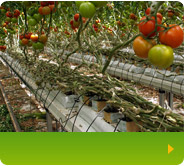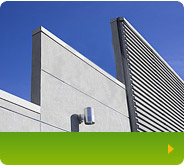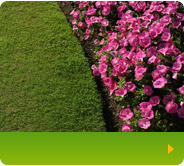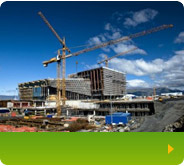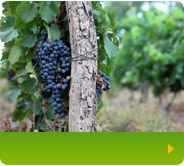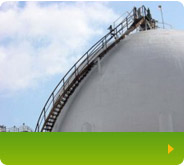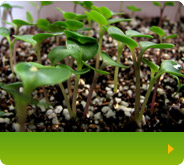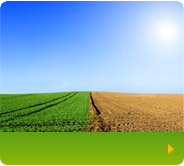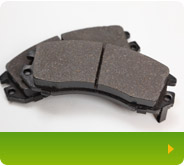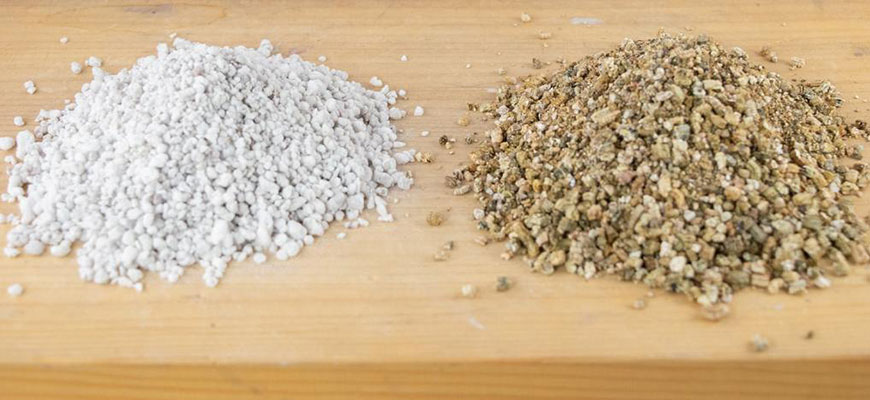Introduction
When it comes to gardening, choosing the right materials to enhance your soil’s quality is crucial. Two popular options that gardeners often consider are vermiculite and perlite. Both of these substances offer unique properties that can improve soil drainage, aeration, and water retention. However, understanding the differences between vermiculite and perlite is essential to determine which one is best suited for your garden’s needs. In this article, we’ll delve into the characteristics, benefits, and best applications of vermiculite and perlite to help you make an informed decision.
Vermiculite: A Garden’s Best Friend
Vermiculite is a natural mineral that expands when heated, forming a lightweight and highly absorbent material. It is often used in horticulture for its ability to retain moisture and nutrients while promoting proper drainage. Let’s explore the benefits of using vermiculite in your garden:
1. Superior Water Retention
Vermiculite’s unique structure allows it to hold water within its layers, ensuring a steady supply of moisture to plant roots. This property is especially advantageous in arid climates or for plants that require consistent watering. By retaining moisture, vermiculite helps prevent soil from drying out too quickly, reducing the risk of plant stress and promoting healthy growth.
2. Improved Soil Aeration
In addition to water retention, vermiculite also enhances soil aeration. Its lightweight and porous nature create air pockets within the soil, improving oxygen circulation around the roots. This increased aeration aids root respiration, leading to stronger and healthier plants.
3. Nutrient Stability
Vermiculite has the ability to attract and retain essential plant nutrients such as potassium, magnesium, and calcium. It acts as a reservoir, slowly releasing these nutrients to the plant roots over time. This characteristic is particularly beneficial for potted plants or container gardening, where regular fertilisation may be challenging.
Perlite: The Gardener’s Secret Weapon
Perlite, like vermiculite, is a natural mineral, but it undergoes a different manufacturing process. It is heated to high temperatures, causing it to expand and form lightweight granules with a white color. Let’s explore the advantages of incorporating perlite into your garden:
1. Enhanced Drainage
One of the primary benefits of using perlite is its excellent drainage properties. The porous structure of perlite allows excess water to pass through the soil quickly, preventing waterlogged conditions that can lead to root rot or fungal diseases. This makes perlite an ideal addition to heavy soils that tend to retain moisture.
2. Increased Soil Aeration
Similar to vermiculite, perlite also contributes to improved soil aeration. Its lightweight particles create air pockets within the soil, facilitating oxygen exchange and promoting root development. By preventing compaction, perlite ensures that plant roots have the necessary space to grow and access essential nutrients.
3. Lightweight and Sterile Medium
Perlite is lightweight and easy to handle, making it a popular choice for container gardening and potting mixes. Its sterility ensures that it is free from pests, diseases, and weed seeds, providing a clean growing environment for your plants. Furthermore, its neutral pH makes perlite compatible with a wide range of plant species.
Vermiculite vs. Perlite: Which is Best for Your Garden?
Now that we’ve explored the individual benefits of vermiculite and perlite, let’s compare them side by side to help you determine which one is best suited for your garden:
| Vermiculite | Perlite | |
|---|---|---|
| 1. | Retains moisture and nutrients | Enhances drainage and prevents waterlogging |
| 2. | Improves soil aeration and oxygen circulation | Promotes root development and prevents compaction |
| 3. | Acts as a nutrient reservoir | Lightweight and easy to handle |
| 4. | Ideal for arid climates and water-demanding plants | Suitable for heavy soils and water-sensitive plants |
| 5. | Excellent for potted plants and container gardening | Sterile and weed-free medium |
As you can see, both vermiculite and perlite offer unique advantages depending on your garden’s specific requirements. Vermiculite excels in moisture retention, making it an excellent choice for plants that require consistent watering or for regions with dry climates. It also enhances soil aeration and acts as a nutrient reservoir, providing a favourable environment for healthy root growth.
On the other hand, perlite shines in terms of drainage improvement and soil aeration. Its lightweight nature prevents waterlogging and promotes proper oxygen circulation, preventing root rot and compaction. Perlite is particularly beneficial for heavy soils that tend to retain moisture, ensuring optimal conditions for plant development.
When it comes to practical applications, vermiculite is often favoured in potted plants and container gardening. Its ability to retain moisture and nutrients over an extended period reduces the frequency of watering and fertilisation. Additionally, vermiculite’s lightweight properties make it easier to handle when mixing potting soils.
Perlite, with its excellent drainage and lightweight nature, is an ideal choice for gardens with heavy or clay soils. It prevents waterlogged conditions and provides the necessary space for root development. Perlite is also commonly used in hydroponics and soilless gardening systems due to its sterile and weed-free characteristics.
Frequently Asked Questions (FAQs)
Can vermiculite and perlite be used together in gardening?
Yes, vermiculite and perlite can be combined to achieve a balanced soil mix. Their complementary properties create an optimal environment for plant growth by ensuring proper moisture retention, drainage, and aeration. Mixing them in appropriate proportions can help maximise the benefits of both materials.
Are vermiculite and perlite safe for organic gardening?
Both vermiculite and perlite can be used in organic gardening. They are naturally occurring minerals and do not contain any harmful chemicals. However, it is essential to choose vermiculite and perlite products that are certified organic or free from contaminants to maintain the integrity of your organic garden.
How often should vermiculite and perlite be replaced in the soil?
Vermiculite and perlite are durable materials that can last for many years in the soil. However, their effectiveness may gradually diminish over time. It is recommended to replace or refresh the vermiculite and perlite in your soil mix every 3-5 years to maintain optimal soil structure and performance.
Can vermiculite and perlite be reused?
Yes, both vermiculite and perlite can be reused in gardening. After harvesting your plants, you can separate the vermiculite or perlite from the soil, clean them, and store them for future use. However, it is crucial to inspect them for any signs of contamination or degradation before reuse.
Do vermiculite and perlite change the pH of the soil?
Vermiculite and perlite are neutral in pH, which means they do not significantly alter the soil’s acidity or alkalinity. This makes them suitable for a wide range


